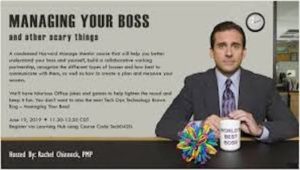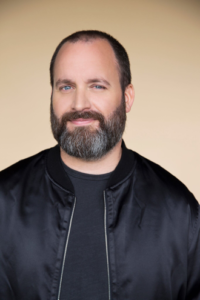Bits and Pieces
Ideas I’ve Been Chewing Over Recently…

Revolution vs. Evolution
* Revolution is loud and fast. Evolution is quiet and slow.
* Revolution causes change, but mostly superficial change that is easily and often reversed. This is not true for evolution because evolution is not a cause, but a result.
* Revolution is linear. It moves forward and then back. Evolution moves like a river or sometimes like a switchback up a mountain.
* Evolution is deeply set and long lasting. Revolution is superficial and temporary.
Rationality
* Rationality has two fundamental components: discrimination and integration.
* Discrimination is logical. Integration is analogical.
* Discrimination helps us understand how things are. Integration helps us imagine how they might be.
* One cannot have a fully functional mind without continually engaging in both processes.
Human Expression
* The human being has three primary modes of expression: language, music, and physical movement.
* The primary function of language is to discriminate.
* The primary function of music is to integrate.
* Only physical movement is capable of both.
For the New Year, If You Dare:
Make a Deal with Your Inner Devil

I discovered it nearly 40 years ago. I was 32 – five years into what was promising to be a comfortable but unremarkable career. I wanted more. Much more. And I wanted many mores. I was destined to get few or none of them. But when I put this secret to use, my life changed immediately and enormously.
I’m talking about establishing a singular goal in life and adhering to a hyper-focused routine. I’m talking about giving up – at least until that primary goal is achieved – all other goals and ambitions. It is a deal you make with the devil inside you. It almost certainly means neglecting friends and family. And it might turn you into someone you don’t want to be. But it has the virtue of being simple. And extremely powerful. It will definitely give you the best possible chance of achieving that one thing you want more than anything else.
It worked for me, quickly and completely. I crashed through my initial goal and then exceeded it by 20,000%. But like all deals with the devil, it changed me. And it could have ruined me. In my 50th year, I abandoned it and began to work on other goals and achieve more balance in my life.
I never put a name to it. But I can say that it is an emanation of “The Power of One.” Probably the most important one.
It’s putting the immense power of singularity towards radically changing some important aspect of your life – your health, your wealth, your social life, or your personal life. If you think you’d like to harness this power for a change in your life, here is how it goes:
- Make a list of 50 aspirations.
- Narrow that list to 10. Consciously and purposefully, let go of the other 40.
- Narrow the list of 10 to 3. Consciously and purposefully, let go of the other 7.
- Narrow the list of 3 to 1. Consciously and purposefully, let go of the other 2.
- Confirm, in some formal way, your one and only goal. Let the people you care about know that, until you achieve this goal, it will be your top priority.
- Create a multi-year plan to achieve it.
- Break that plan into one-year goals. Then into monthly goals. Then weekly goals. And, finally, into daily tasks.
- Spend the first hour of every day – and 80% of your spare time – pursuing that one objective.
- Do your best, with the 20%, to keep everything else you value from falling apart.
Good Bye, Bill. I Won’t Miss You!

I’ve not lived there for 40 years, but in some ways, I still consider myself a New Yorker. Like most expatriates, I identify with everything that is great about the city. And there used to be so much. Lately, however, it has devolved in several critical respects. It has become, in the memorable verbiage of our former president, a metropolitan shithole. This is largely due to the woke politics of Bill DeBlasio and a cast of cronies, including the infamous AOC. For example:
* From 2012 to 2018, 200,000 left the city. In 2021, 300,000 fled, most of them high-income earners.
* New York has also lost many big and vibrant businesses due to higher taxes and soaring crime. And it has lost hundreds of restaurants and retail stores due to the COVID lockdown.
* Murders are up 50%. Rapes are up 25%. Even my wokest friends, loyal denizens of the city, feel it’s unsafe to take a walk at night.
* Plus, New York has become the dirtiest city in the country. Its infrastructure is crumbling. Its sanitation is Third World.
Yes, it’s a shithole right now. But it can recover. The Big Apple has been rotten before. It was a dirty, dangerous shithole when I was in my teens. And it came back beautifully from that. Its best hope is its new mayor, Eric Adams. He’s got his work cut out for him. But as a former policeman, he seems to understand that the first priority in fighting crime is a belief in law and order. Whether he will actually do anything about that remains to be seen.
Meanwhile, in California…
Easy-on-Crime Policies Continue to Spur Both Violent Crime and Theft

Since George Gascón took office as LA’s Attorney General 13 months ago, the city has seen a 50+% spike in homicides and a 16+% jump in aggravated assaults. Carjackings and auto thefts are up more than 50%. So is just about every other type of crime. And former LA District Attorney Steve Cooley says that these numbers may be understated because the public has lost faith in the justice system.
In San Francisco, more than 50 prosecutors, support, and victim services staff have quit their jobs since District Attorney Chesa Boudin began implementing his progressive criminal justice policies. (Boudin campaigned on a platform to end mass incarceration, eliminate cash bail, and vowed to create a panel to review sentencing and potential wrongful convictions.)
“The office is imploding,” said a former prosecutor who produced the list of those who’ve left their jobs since Boudin was sworn into office on Jan. 10, 2020.
Another Busybody Bad Idea

When you hear about some new trend in criminality or social stupidity, you may react as I sometimes do: “There should be a law!”
The problem with such thinking is that it is reactionary and, therefore, superficial. It does not take into account all the possible unintended and undesired consequences. Many of those consequences result in less personal freedom. And that matters. Individual freedom is the bedrock of a strong and prosperous society. It supports political fairness, social health, justice, and economic growth.
A small but typical example: In response to gas prices tripling in 1974, the Nixon administration passed the Emergency Highway Energy Conservation Act that mandated a national speed limit of 55 mph. Until then, speed limits had varied state to state, and went as high as 80 mph on long stretches of road in the West. It was projected to decrease national gas consumption by roughly 2.2%.
You wouldn’t think that a 2.2% reduction would be worth such a restrictive federal mandate, but it was implemented. It resulted in billions of dollars in additional transportation costs. And, it turned out, the actual reduction was only one-tenth of 2.2%.
In 1987, the national speed limit was officially raised to 65 mph. And by 1995, the law was fully repealed, returning control of speed limits to the individual states.
Prediction: If the Biden administration succeeds in either federal vaccine mandates or federal voting mandates, they will prove equally ineffective, will have all kinds of undesired consequences, and will be repealed in fewer than 10 years.
Meta-Nation Update: Twitter Banishes Non-Compliant Citizens

In an essay titled “What You Need to Know Right Now About the Metaverse,” I said that the metaverses of the future will act as meta-nations, controlling their ersatz citizens through shunning and banishment. Here is an update on how it’s already happening:
* Grabien News was suspended by Twitter last month for posting a video of a US Congressman (Rep. Andy Biggs) criticizing pharmaceutical corporations. “Obviously, in this case,” said Grabien founder Tom Elliott, “quoting an elected leader on an issue that matters to everyone is important and newsworthy, regardless of whether you agree…. This is “next-level Twitter absurdity.”
* Dr. Robert Malone, who helped develop the mRNA vaccine technology, was suspended Jan. 3 for allegedly violating Twitter’s terms and conditions. On Jan. 2, Rep. Marjorie Taylor Greene’s personal Twitter page had been suspended for similar reasons.
* Former New York Times journalist Alex Berenson filed a lawsuit against Twitter after his account, which had amassed hundreds of thousands of followers, was banned.
* And last month, former CEO Jack Dorsey resigned from his position at Twitter, sparking concern that the San Francisco-based company would take a tougher stance on what content can be posted.
Literary Books Entering the Public Domain in 2022

Over the last two years, several dozen great works of literature have entered the public domain. That means you can sell these books – or turn them into movies – without paying royalties. As of Jan. 1, 2022, the following books (all published in 1926) were added to the list:
* Willa Cather, My Mortal Enemy
* Agatha Christie, The Murder of Roger Ackroyd
* William Faulkner, Soldiers’ Pay
* Ernest Hemingway, The Sun Also Rises
* Ernest Hemingway, The Torrents of Spring
* Zora Neale Hurston, Color Struck
* D.H. Lawrence, The Plumed Serpent
* D.H. Lawrence, The Rocking-Horse Winner
* T.E. Lawrence, Seven Pillars of Wisdom
* A.A. Milne, Winnie-the-Pooh
* Vladimir Nabokov, Mary
* Dorothy Parker, Enough Rope
* Franz Kafka, Das Schloss (The Castle)
* Vita Sackville-West, The Land
Worth Quoting
Gus D’Amato, the legendary trainer of Mike Tyson and other top boxers, on courage:
“I tell my kids, what is the difference between a hero and a coward? What is the difference between being [cowardly] and being brave? No difference. Only what you do. They both feel the same. They both fear dying and getting hurt. The man who is [cowardly] refuses to face up to what he’s got to face. The hero is more disciplined and he fights those feelings off and he does what he has to do. But they both feel the same, the hero and the coward. People who watch you judge you on what you do, not how you feel.”
(Source: Bad Intentions: The Mike Tyson Story)
Words to the Wise
* A word I’ve always misunderstood: jejune. I’ve always thought, correctly, that it is related to the French word juene, as in young. And, thus, means “childish or immature.” In fact, it derives from the Latin jejunus, which means “fasting.” As in empty. Thus, its primary meaning is “insubstantial or lacking substance.” Childish and immature are secondary synonyms, but the more common denotation is banal or insipid.
* A word I’m going to use next time I’m in Istanbul: dragoman. A dragoman is a professional guide for travelers, especially when Arabic, Turkish, or Persian is spoken.
* A word I’m going to use next time I see someone wolfing down a meal: ingurgitate. To ingurgitate is to swallow something greedily.
Letters to the Editor
From a reader after a visit to Rancho Santana…
“The people at Rancho Santana are so nice and welcoming. The food was delicious and I loved how everything is so sustainable and fresh. The beautiful beaches and scenery transcend you immediately when you arrive. Great energy, beauty, and fun. And the spa is absolutely incredible!” – SB




































